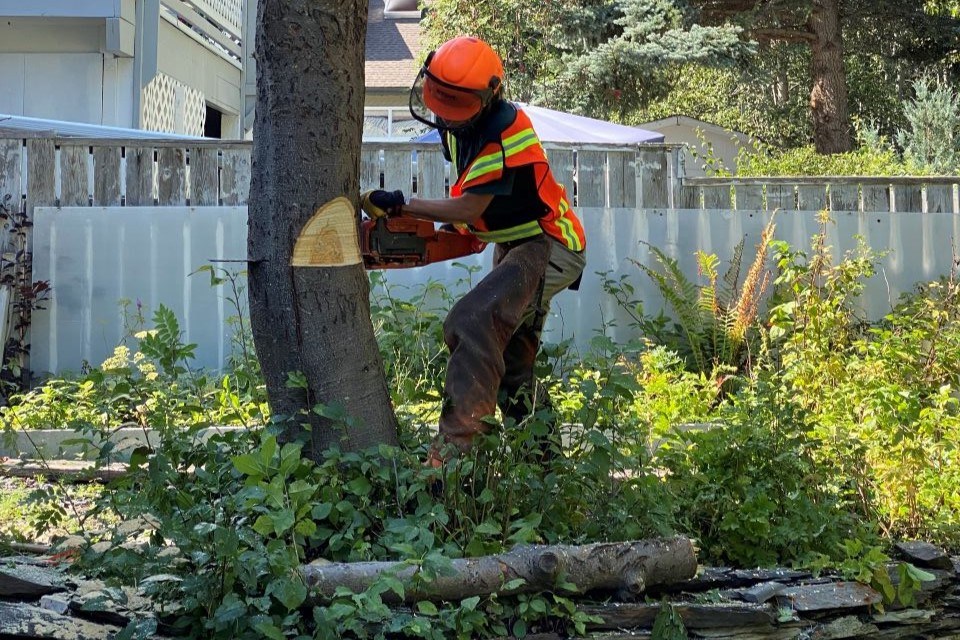There’s a new program in Jasper to help alleviate the perennial problem of bears attracted to fruit trees belonging to residents and businesses.
Parks Canada is introducing a Fruit Tree Replacement Program this spring. “Get rid of the trees, get rid of the problem” was the basic idea presented by resource conservation manager Dave Argument during his presentation at the Annual Forum on March 12.
The scope of the problem is nothing to sniff at either.
“The persistent presence of bears in town raises safety concerns for residents and visitors,” he said, noting that there were more than 400 incidents in the Jasper townsite last year.
Many of those incidents involved bears searching for food in trees near the schools, daycares and playgrounds.
“Managing fruit trees and other attractants is the only viable approach to reducing the frequency of bears coming into the community,” Argument said.
“Short-term strategies such as hazing of bears has not proven to be effective over time if the attractant still exists. Once bears learn that food source is there, they will keep trying to come back to it.”
The food reward usually outweighs the discomfort they experience caused by those hazing methods. Relocating fruit-conditioned bears from the townsite also has a low success rate and can be hazardous to the bears being moved.
There are approximately 900 non-native fruit trees that attract bears, creating the potential for negative human-wildlife interactions. Since 2019, over 200 fruit trees have been removed from both private and public lands in Jasper.
The ongoing goal is to significantly reduce this number, contribute to wildlife safety and community well-being.
With all that in mind, Parks Canada has this new program to offer to replace non-native fruit tree with a non–fruit-bearing tree.
There are 270 trees available for the program’s spring launch, with six species available: native trembling aspen, paper birch, non–fruit-bearing columnar aspen, spring snow flowering crabapple, Amur maple or silver maple. They will be approximately six feet tall and 2.5 to four centimetres in diameter.
“We hope that providing replacement trees will encourage residents to remove their fruit trees and make Jasper a safer place for people and bears. Additionally, planting more trees will add some green and beautify the town,” said Tracy McKay, ecologist team leader for Jasper National Park Wildlife Management.
“Part of what we're trying to do is recognize the fact that everybody loves a green community,” Argument said, noting how a good tree cover helps make the townsite a more pleasant place to spend during the hot summers.
He noted that it was unfortunate that the fruit trees must go, especially in the wake of all the pine trees that were killed by the mountain pine beetle in recent years.
“We'd like to try to find a way to replace some of the last trees. We've actually lost a lot of trees in town over the last number of years. This is a little bit of trying to get back some of that greenery.”
Residents and businesses who previously had their non-native fruit trees removed between 2019 and 2023 will be given priority for replacement trees. Next in line are those residents and businesses who do the same during this calendar year.
Parks Canada staff may be able to assist with the removal of existing fruit trees and the planting of new ones. That will be determined on a case-by-case basis dependent on multiple variables including size of the tree to be removed and the complexity of the situation as well as availability of Parks staff.
To participate, people can contact Parks Canada via email at [email protected] or by calling 780-820-0853.
Parks Canada also plans to expand the program in 2025.



